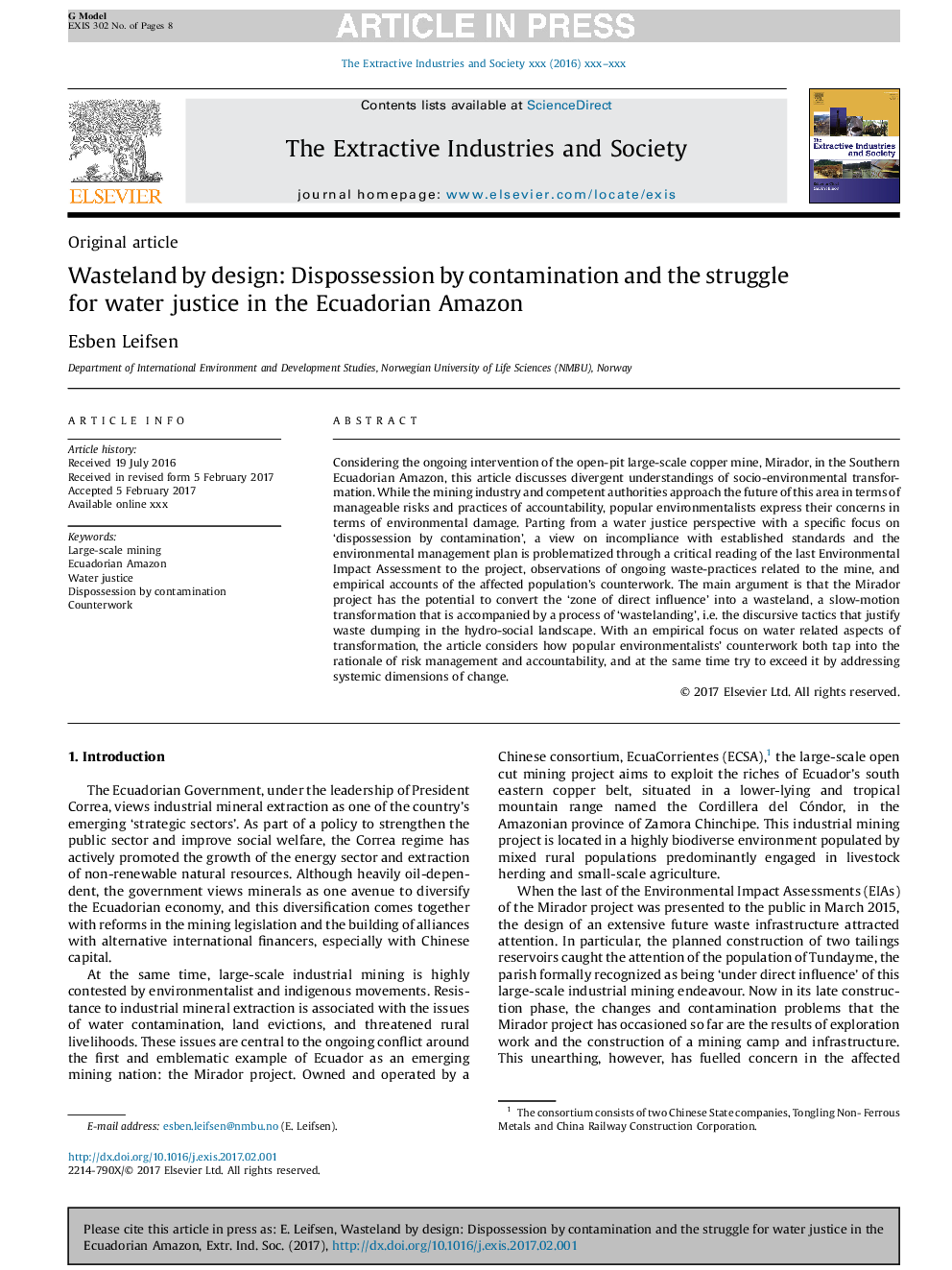| Article ID | Journal | Published Year | Pages | File Type |
|---|---|---|---|---|
| 5114402 | The Extractive Industries and Society | 2017 | 8 Pages |
Abstract
Considering the ongoing intervention of the open-pit large-scale copper mine, Mirador, in the Southern Ecuadorian Amazon, this article discusses divergent understandings of socio-environmental transformation. While the mining industry and competent authorities approach the future of this area in terms of manageable risks and practices of accountability, popular environmentalists express their concerns in terms of environmental damage. Parting from a water justice perspective with a specific focus on 'dispossession by contamination', a view on incompliance with established standards and the environmental management plan is problematized through a critical reading of the last Environmental Impact Assessment to the project, observations of ongoing waste-practices related to the mine, and empirical accounts of the affected population's counterwork. The main argument is that the Mirador project has the potential to convert the 'zone of direct influence' into a wasteland, a slow-motion transformation that is accompanied by a process of 'wastelanding', i.e. the discursive tactics that justify waste dumping in the hydro-social landscape. With an empirical focus on water related aspects of transformation, the article considers how popular environmentalists' counterwork both tap into the rationale of risk management and accountability, and at the same time try to exceed it by addressing systemic dimensions of change.
Keywords
Related Topics
Life Sciences
Environmental Science
Management, Monitoring, Policy and Law
Authors
Esben Leifsen,
